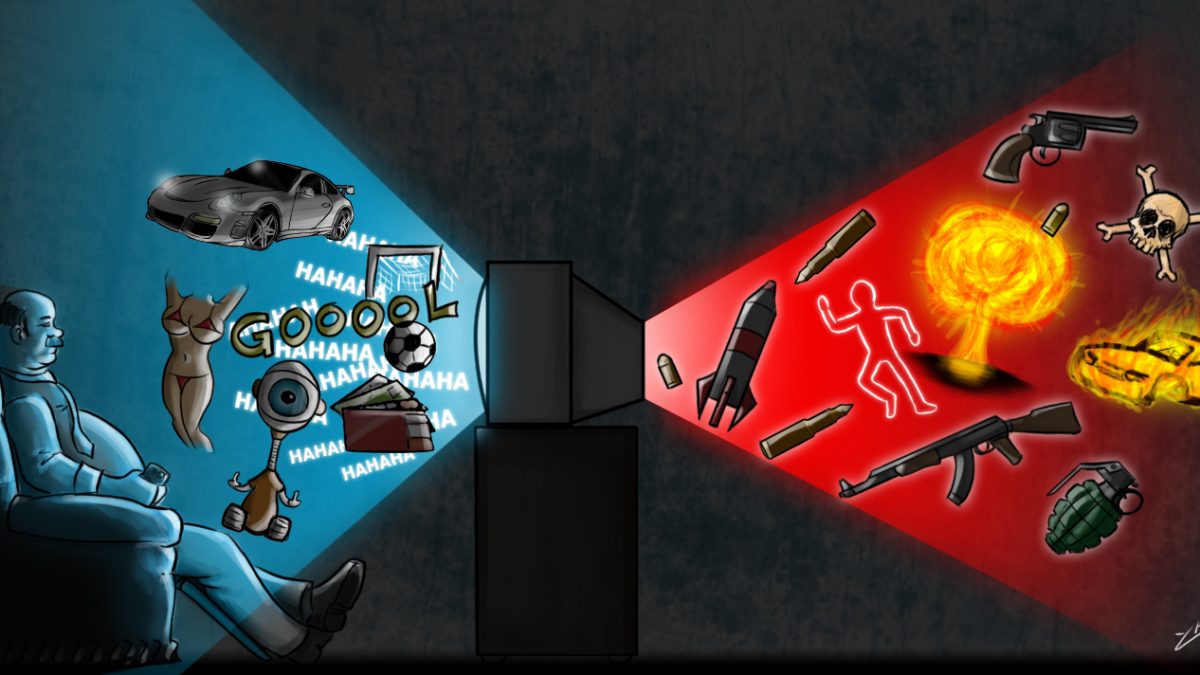Split Between Fire and Speed: Living With Two Daemons
May 9, 2025
The Professor Is Dead. Long Live the Professor.
May 14, 2025There’s a strange malaise creeping through the American psyche—not quite a disease, but a numbing. Not a bomb, but a slow forgetting. We laugh. We scroll. We binge. And then we forget what we were laughing at.
This isn’t new. Neil Postman warned us nearly 40 years ago in Amusing Ourselves to Death: our greatest threat wasn’t Orwell’s jackboot but Huxley’s candy-colored screen. We wouldn’t be silenced—we’d just be too distracted to care.
And here we are.
📺 The Reality of Reality TV
Let’s be clear: not all television is mindless. But reality TV—with its scripted chaos, endless conflict loops, and celebration of superficial fame—may be one of the most effective agents of cultural regression ever devised.
It doesn’t just entertain. It conditions.
- It rewards emotional spectacle over thoughtful discourse.
- It flattens complex social dynamics into easily digestible tropes: hero/villain, winner/loser.
- It trains viewers to watch, react, judge—but not reflect.
Shows like The Bachelor, Real Housewives, and yes, The Apprentice, aren’t just escapism. They’re pedagogical—teaching us how to feel about power, relationships, and what counts as “success.”
From Shakespeare to Showbiz Politics
The shift is cultural, but it bleeds into the political.
Donald Trump didn’t rise in a vacuum. He emerged from a long-cultivated media ecosystem that blurred the line between entertainment and authority. The Apprentice cast him not as a bankrupt businessman, but as a decisive messianic CEO. That illusion stuck. Why? Because it was cinematic. And because many Americans had already been trained—through decades of television—to confuse charisma with competence.
This isn’t partisan snark. It’s structural analysis.
Steve Bannon, Trump’s former strategist, once confessed the strategy bluntly: “Flood the zone with shit.” Overwhelm the public with conflicting narratives, distortions, outrage. Drown reason in noise. When you do, people stop searching for truth. They retreat to tribalism, gut instinct, and spectacle.
Which brings us full circle.
Dumbing Down or Wearing Down?
We often say Americans are being “dumbed down.” But perhaps that’s not quite right. Maybe we’re being worn down—intellectually, emotionally, spiritually.
What’s the result?
- A populace skeptical of scientists and teachers, but enamored with influencers.
- Political discourse reduced to memes and rage clicks.
- Public policy treated like a reality show finale—decided by drama, not deliberation.
This dynamic benefits some politicians more than others. Populist movements—especially those built on anti-elitism—can thrive in environments hostile to complexity. That doesn’t make all conservatives villains. But it does mean some political operatives (on the right especially, though not exclusively) have actively benefited from the erosion of critical thinking.
This Isn’t a Conspiracy. It’s a System.
Let’s be clear: this isn’t a conspiracy theory. I’m not suggesting there’s a secret cabal orchestrating public stupidity from a smoky boardroom.
Rather, it’s a reflection on how media systems evolve to reward attention, even at the cost of understanding. Our cultural institutions didn’t set out to dumb us down—but when outrage and spectacle make more money than reflection and nuance, the result is inevitable. It’s not a plot. It’s a pattern.
So What Do We Do?
We resist. Not with anger, but with attention.
We read. We pause. We teach our children to question.
We celebrate nuance in an age of simplicity. We seek depth in an era of distraction.
And most importantly—we never confuse spectacle with truth.
